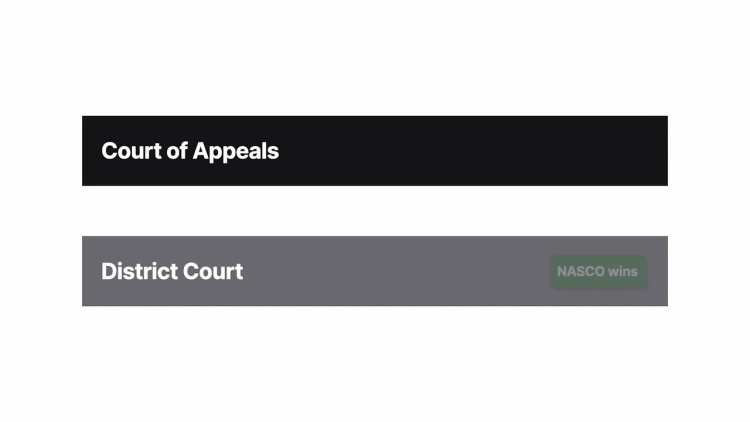Chambers v. NASCO, Inc.
United States Supreme Court
501 U.S. 32, 111 S.Ct. 2123 (1991)
- Written by Alexis Tsotakos, JD
Facts
In August 1983, G. Russell Chambers (defendant), the sole shareholder and director of Calcasieu Television and Radio, Inc. (CTR), entered into a contract to sell his station’s facilities and broadcast license to NASCO, Inc. (plaintiff) for $18 million. The deal was subject to approval by the Federal Communications Commission (FCC), and the parties agreed to file with the FCC by no later than September 23, 1983. Before filing, however, Chambers decided that he wished to withdraw from the deal. Chambers informed NASCO that he would not file any documents with the FCC. NASCO notified Chambers that it would be filing suit against him and CTR for breach of contract, and that it planned to request a temporary restraining order to prevent Chambers from selling the facilities to a third party. From that point forward, Chambers and his attorneys engaged in repeated unethical and abusive conduct, intended to bully NASCO into submission. Despite frequent warnings and several sanctions from the trial judge, neither Chambers nor his attorneys relented in their activities. The district court found in NASCO’s favor, and Chambers appealed. The court of appeals found the appeal frivolous, and remanded the case for the trial court to determine the amount of sanctions to be imposed. On remand, NASCO moved for sanctions. The trial court imposed sanctions in the form of attorneys’ fees and costs, totaling $996,644.65; it also suspended one of Chambers’ attorneys and disbarred another. Chambers appealed, the court of appeals affirmed, and the United States Supreme Court granted certiorari.
Rule of Law
Issue
Holding and Reasoning (White, J.)
Dissent (Kennedy, J.)
What to do next…
Here's why 904,000 law students have relied on our case briefs:
- Written by law professors and practitioners, not other law students. 47,100 briefs, keyed to 995 casebooks. Top-notch customer support.
- The right amount of information, includes the facts, issues, rule of law, holding and reasoning, and any concurrences and dissents.
- Access in your classes, works on your mobile and tablet. Massive library of related video lessons and high quality multiple-choice questions.
- Easy to use, uniform format for every case brief. Written in plain English, not in legalese. Our briefs summarize and simplify; they don’t just repeat the court’s language.





